
|
|
Originally published May 2013 Last updated May 2023 Free printable images
|
|||||||||
|
|
|
A few practical tips
The original 19th century image was printed with black ink, but most modern Green Scapular images are printed in green ink. I have made these images available in both green and black. If you want full color, these PDFs can be opened in some vector graphics apps for further editing.
To use these illustrations, just click on the images below to get to the PDF files. Then print the PDFS on printable iron-on fabric sheets, and then iron the images onto green felt. Or you can print them on regular printable fabric sheets and sew them onto the green felt in the traditional manner instead of ironing them. I live in Tokyo and buy my materials locally.
The images are 30mm X 45mm, so 40mm X 55mm felt squares will give 5mm margins.
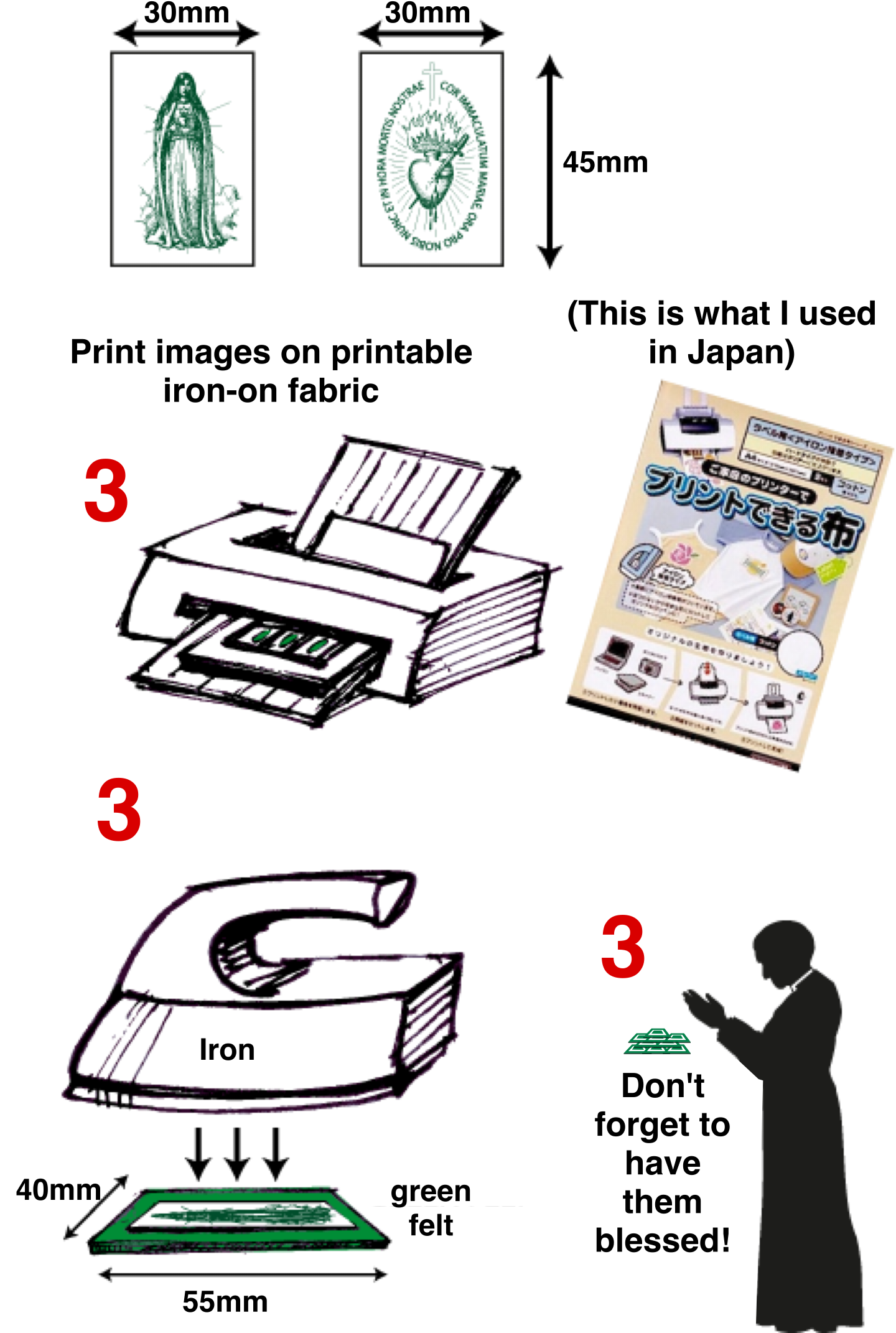
Green Scapulars can be made of any green fabric. I prefer felt because it is easy to work with.
 But felt is difficult to cut with precision. If you use a craft knife, you can end up with ragged edges. If you use scissors, it is difficult to cut perfectly straight or keep accurate 90 degree angles.
But felt is difficult to cut with precision. If you use a craft knife, you can end up with ragged edges. If you use scissors, it is difficult to cut perfectly straight or keep accurate 90 degree angles.
But I have have had success with a rotary cutter which is held against a metal ruler or straight edge.
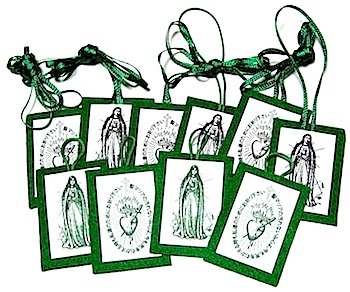
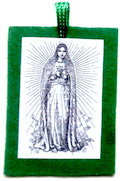 somewhere in someone's home.
somewhere in someone's home.
I have tried various cord and ribbon configurations, and eventually settled on a simple ribbon loop as shown in the photo to the right. This will give people the choice of carrying it in the pocket or passing a cord through the loop for wearing it around the neck.
If you print the image on an iron-on self adhesive sheet, make sure to have as much cord or ribbon under the image panel as possible without sticking out the other end. This way the cord or ribbon will be firmly held in place by the adhesive.
Please share and spread the word
If you make and distribute these Green Scapulars and hear of conversions, miracles or other graces, or have a story related to the Green Scapular, please share it with The Society of the Green Scapular so they can publish your account.
Also, feel free to download all these PDFs and store them for safekeeping, and even post them on your own web site (along with information from this article) so they will always be available to others. These images will enable people all over the world to have an evangelistic ministry using the Green Scapular, and I would hate to see them vanish some day in the future after I am gone, along with this web site.
The original 19th century Green Scapular images
These are the original Green Scapular images which were first printed in the 1840s in France, and apparently met with Sister Justine Bisqueyburu's approval although she lamented the fact that the printer did not include rays coming from the Blessed Virgin Mary's hands as she had seen in the apparitions.
When I first set out to print my own Green Scapulars, I naturally tried to find a copy of this original 19th century art, but I could not find anything on the internet with high enough resolution for printing a crisp image at a small size.
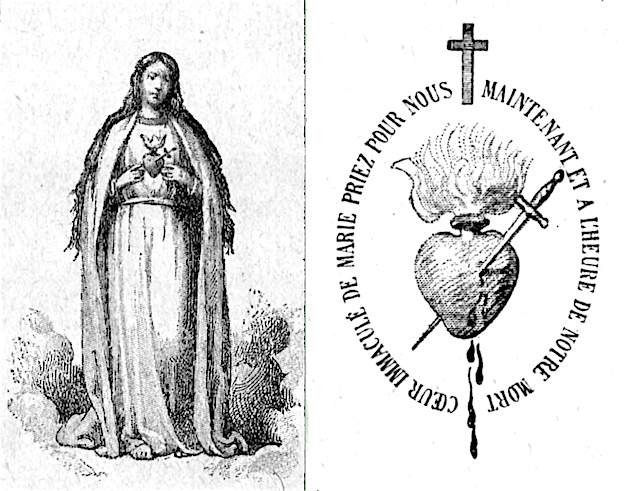
I did manage to find these low resolution web images, but when I printed them onto fabric with a home inkjet printer, the ink spread quite a bit, and the lines came out thicker than the original art, and all those fine details and subtle shades of gray were lost. So the images were not suitable for producing more Green Scapulars.
To print on such a small area without losing details would require a special image created for that purpose.
New Green Scapular images
To combat this printing problem as well as the unavailability of high resolution Green Scapular art, I created a new version of the art from scratch.
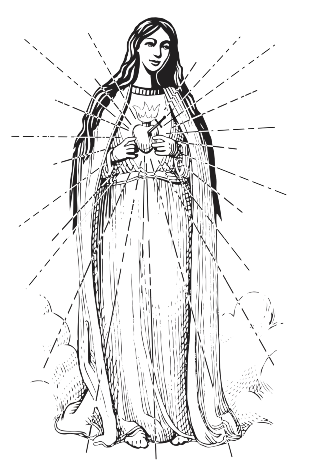 |
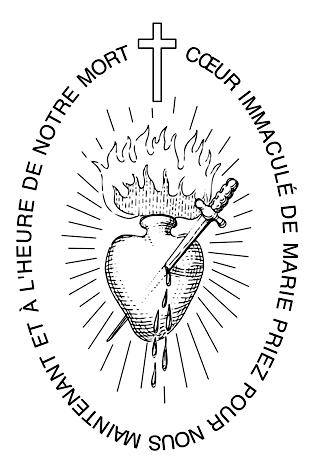 |
| New Green Scapular images (version 1) | |
I made sure to keep adequate space between very fine lines so they wouldn't become turn unrecognizable blobs when printed on a cheap inkjet printer. As digital images, these might look a bit light, but remember they were created for the purpose of printing on a very small area where the ink spreads out a bit.
Other than that, I tried to keep this new image fairly close to the original French image, except I included rays to conform to Sister Justine's specifications.
The line of text now begins at the top, from the right side of the cross for better readability rather than from the bottom left in the original version. And as I have mentioned above, it is available in several languages.
Version 2
Although my new image is similar to the original French one, there are a few things about the original image of the Blessed Virgin Mary which I thought could be improved upon while remaining faithful to the original apparition.
For example, the hair in the original is so long, it goes past the waist, and does not lie naturally but conforms to the shape of the shoulders. It appears as if the artist had originally intended for the hair to simple lie on the back, out of view.
Perhaps the artist was requested to make the extra length of hair visible, but since the art was already engraved, the tresses could not be placed on the front of the body, but had to be added on top of the shoulders and along the side in an unnatural fashion.
This is all speculation, but being an artist myself, I know how common it is to receive requests for modifications after the work has been completed and can't be changed, to the annoyance of the artist.
I tried to compensate slightly in the image above and make the hair fan out and lie a little bit more naturally, but still I thought the hair was way too long.
So I did a little bit of research to see how long the hair should actually be. The original accounts of the appariton say that her hair hung loosely about her, or her hair fell loosely over her shoulders. There is no mention of it going past the waist.
Also, I thought I'd like to add more rays than I have seen on other Green Scapular images, and try to make them look more like rays and not ropes or spider webs, and I tried to make them look more like rays of light and not just lines.
Finally, the face in the original image might have appeared beautiful to the original artist, but comes across as rather plain in today's culture. I did make a small effort to improve the face in my new version above, but various descriptions of Marian apparitions typically assert how breathtakingly beautiful was her appearance, so I wanted to make the face as pretty as I could in a second version.
Of course, some may prefer the face in the first version. I guess it's a matter of preference.
I have labeled this new illustration version 2. So you can choose between the more traditional first version or the newer second version. I did not make a second version of the image on back side with the heart encircled by the prayer. That image can be used with either my first or second version of the Blessed Virgin Mary illustration.
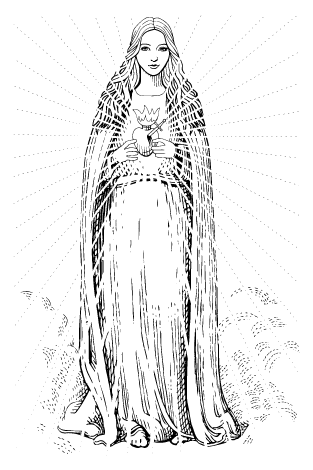
New front image, version 2 |
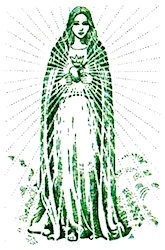
The same image in green printed at Scapular size (photo of an actual scapular) |
Since I adjusted the lines so they would survive inkjet printing at a small size, the resulting digital art is very light and wispy, but as you can see in the actual printed image (30mm X 45mm), the ink spreads out and the balance between light and dark is better.
The images
Scroll down for the same images in black.
| Front image in Green, version 1 |
| The same in all languages | |||
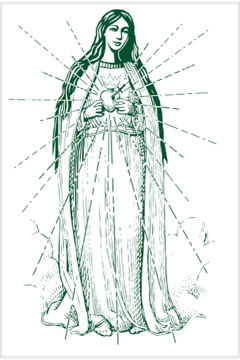 Single image 30mm X 45mm |
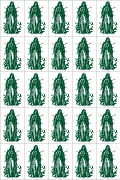 B5 size |
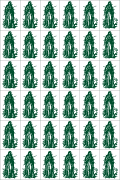 A4 size |
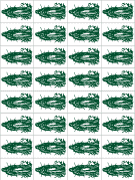 Letter size 8.5" X 11" |
| Front image in Green, version 2 |
| The same in all languages | |||
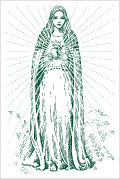 Single image 30mm X 45mm |
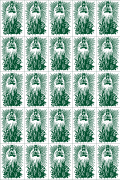 B5 size |
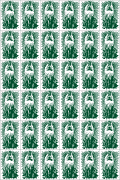 A4 size |
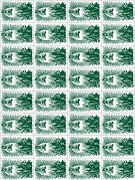 Letter size 8.5" X 11" |
| Back image in Green (in alphabetical order) |
| Chinese, Simplified | |||
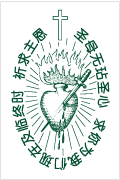 Single image 30mm X 45mm |
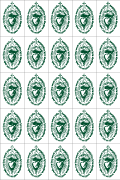 B5 size |
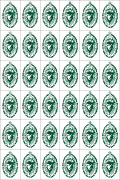 A4 size |
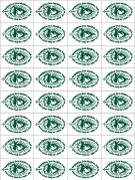 Letter size 8.5" X 11" |
| Chinese, Traditional | |||
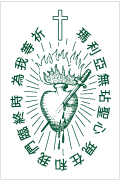 Single image 30mm X 45mm |
 B5 size |
 A4 size |
 Letter size 8.5" X 11" |
| Croatian | |||
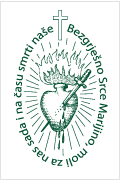 Single image 30mm X 45mm |
 B5 size |
 A4 size |
 Letter size 8.5" X 11" |
| Czech | |||
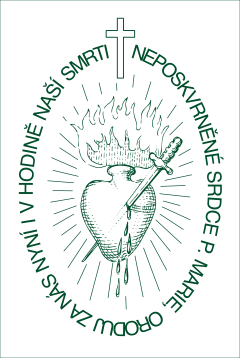 Single image 30mm X 45mm |
 B5 size |
 A4 size |
 Letter size 8.5" X 11" |
| Dutch | |||
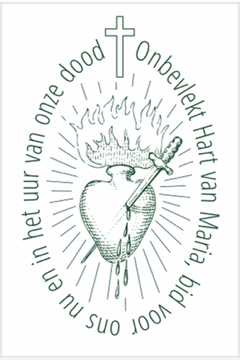 Single image 30mm X 45mm |
 B5 size |
 A4 size |
 Letter size 8.5" X 11" |
| English | |||
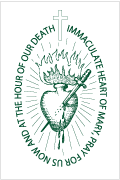 Single image 30mm X 45mm |
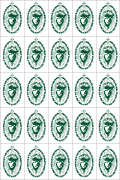 B5 size |
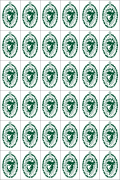 A4 size |
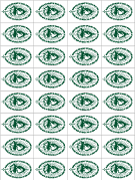 Letter size 8.5" X 11" |
| French | |||
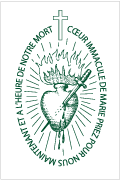 Single image 30mm X 45mm |
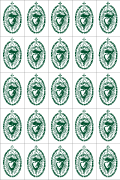 B5 size |
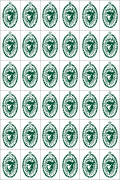 A4 size |
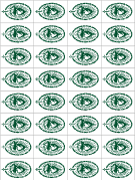 Letter size 8.5" X 11" |
| German | |||
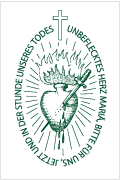 Single image 30mm X 45mm |
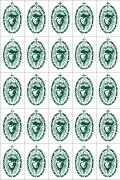 B5 size |
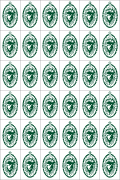 A4 size |
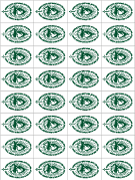 Letter size 8.5" X 11" |
| Hungarian | |||
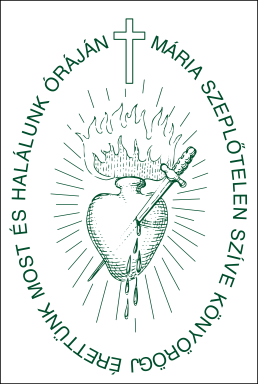 Single image 30mm X 45mm |
 B5 size |
 A4 size |
 Letter size 8.5" X 11" |
| Ilonggo (Hiligaynon) Philippine language spoken widely in the West Visayan region | |||
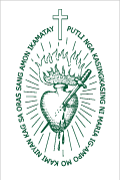 Single image 30mm X 45mm |
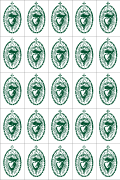 B5 size |
 A4 size |
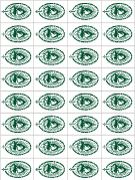 Letter size 8.5" X 11" |
| Italian | |||
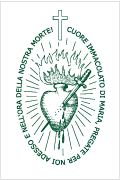 Single image 30mm X 45mm |
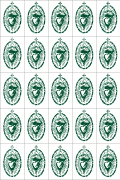 B5 size |
 A4 size |
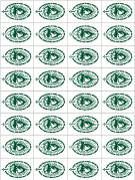 Letter size 8.5" X 11" |
| Japanese, Current | |||
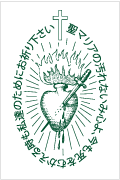 Single image 30mm X 45mm |
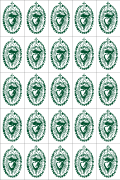 B5 size |
 A4 size |
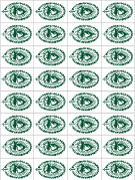 Letter size 8.5" X 11" |
| Japanese, Traditional | |||
Single image 30mm X 45mm |
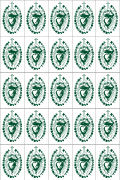 B5 size |
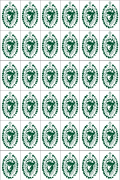 A4 size |
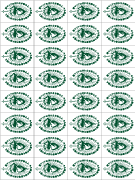 Letter size 8.5" X 11" |
| Latin | |||
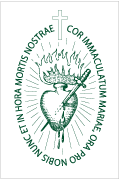 Single image 30mm X 45mm |
 B5 size |
 A4 size |
 Letter size 8.5" X 11" |
| Polish | |||
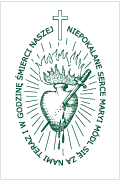 Single image 30mm X 45mm |
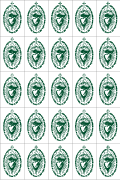 B5 size |
 A4 size |
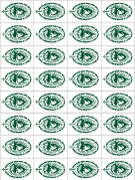 Letter size 8.5" X 11" |
| Portuguese | |||
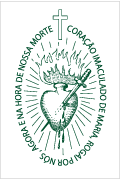 Single image 30mm X 45mm |
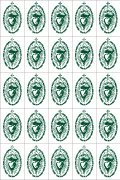 B5 size |
 A4 size |
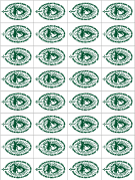 Letter size 8.5" X 11" |
| Russian | |||
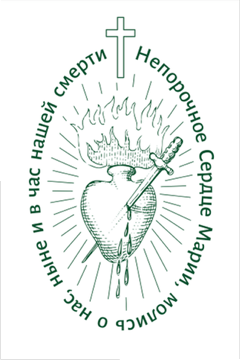 Single image 30mm X 45mm |
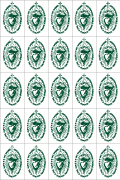 B5 size |
 A4 size |
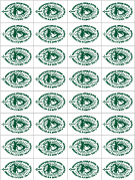 Letter size 8.5" X 11" |
| Slovak | |||
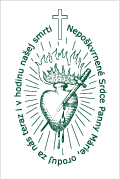 Single image 30mm X 45mm |
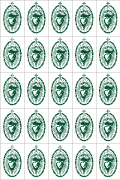 B5 size |
 A4 size |
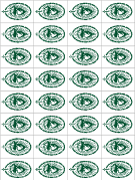 Letter size 8.5" X 11" |
| Spanish | |||
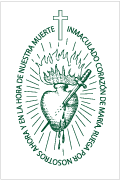 Single image 30mm X 45mm |
 B5 size |
 A4 size |
 Letter size 8.5" X 11" |
| Spanish version 2 | |||
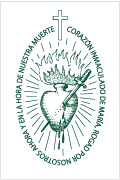 Single image 30mm X 45mm |
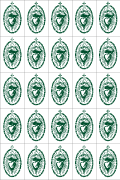 B5 size |
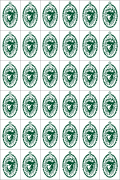 A4 size |
 Letter size 8.5" X 11" |
| Tagalog | |||
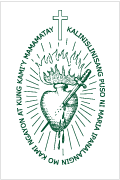 Single image 30mm X 45mm |
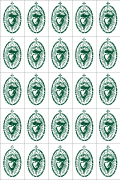 B5 size |
 A4 size |
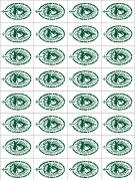 Letter size 8.5" X 11" |
|
Front image in Black, version 1 |
| The same in all languages | |||
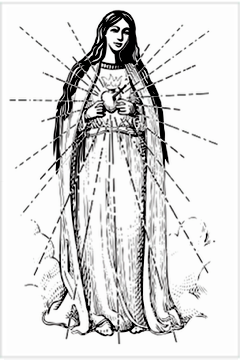 Single image 30mm X 45mm |
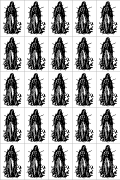 B5 size |
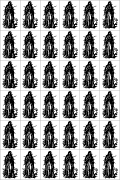 A4 size |
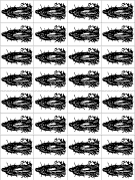 Letter size 8.5" X 11" |
|
Front image in Black, version 2 |
| The same in all languages | |||
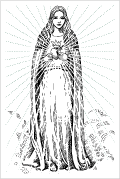 Single image 30mm X 45mm |
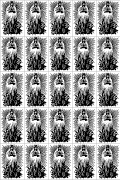 B5 size |
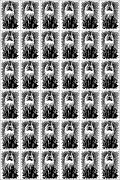 A4 size |
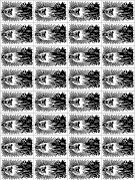 Letter size 8.5" X 11" |
|
Back image in Black (in alphabetical order) |
| Chinese, Simplified | |||
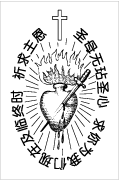 Single image 30mm X 45mm |
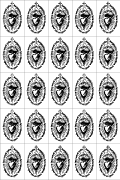 B5 size |
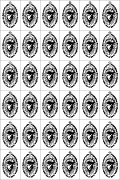 A4 size |
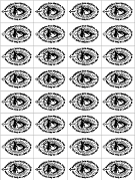 Letter size 8.5" X 11" |
| Chinese, Traditional | |||
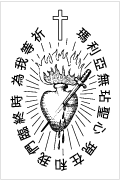 Single image 30mm X 45mm |
 B5 size |
 A4 size |
 Letter size 8.5" X 11" |
| Croatian | |||
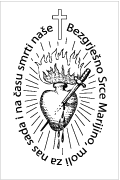 Single image 30mm X 45mm |
 B5 size |
 A4 size |
 Letter size 8.5" X 11" |
| Czech | |||
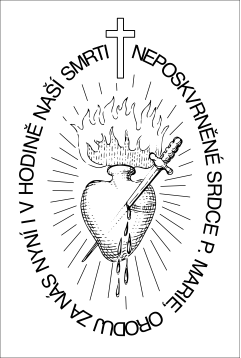 Single image 30mm X 45mm |
 B5 size |
 A4 size |
 Letter size 8.5" X 11" |
| Dutch | |||
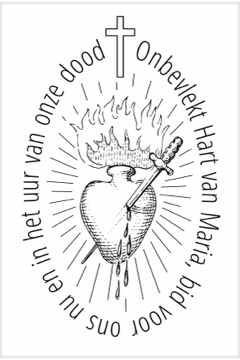 Single image 30mm X 45mm |
 B5 size |
 A4 size |
 Letter size 8.5" X 11" |
| English | |||
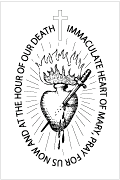 Single image 30mm X 45mm |
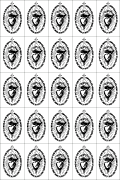 B5 size |
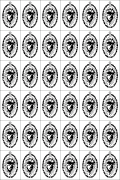 A4 size |
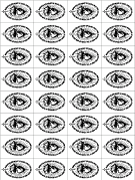 Letter size 8.5" X 11" |
| French | |||
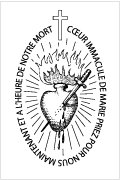 Single image 30mm X 45mm |
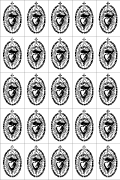 B5 size |
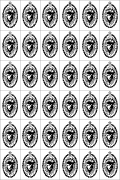 A4 size |
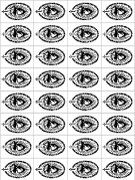 Letter size 8.5" X 11" |
| German | |||
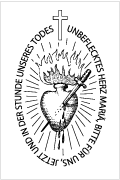 Single image 30mm X 45mm |
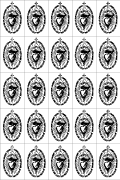 B5 size |
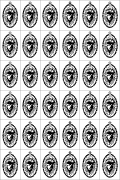 A4 size |
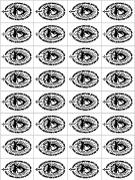 Letter size 8.5" X 11" |
| Hungarian | |||
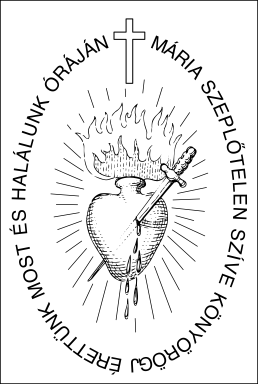 Single image 30mm X 45mm |
 B5 size |
 A4 size |
 Letter size 8.5" X 11" |
| Ilonggo (Hiligaynon) Philippine language spoken widely in the West Visayan region | |||
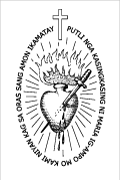 Single image 30mm X 45mm |
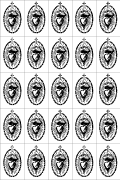 B5 size |
 A4 size |
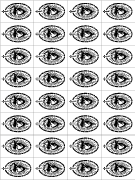 Letter size 8.5" X 11" |
| Italian | |||
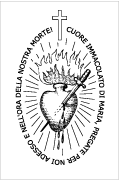 Single image 30mm X 45mm |
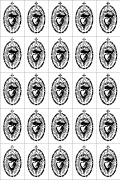 B5 size |
 A4 size |
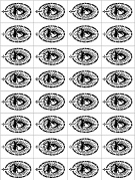 Letter size 8.5" X 11" |
| Japanese, Current | |||
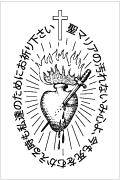 Single image 30mm X 45mm |
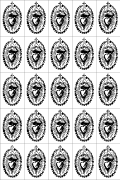 B5 size |
 A4 size |
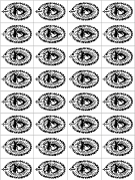 Letter size 8.5" X 11" |
| Japanese, Traditional | |||
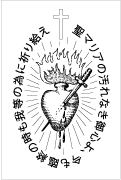 Single image 30mm X 45mm |
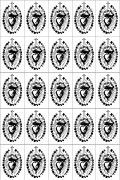 B5 size |
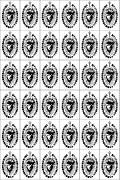 A4 size |
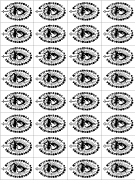 Letter size 8.5" X 11" |
| Latin | |||
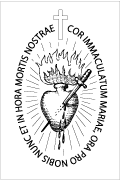 Single image 30mm X 45mm |
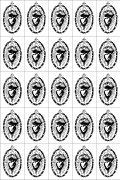 B5 size |
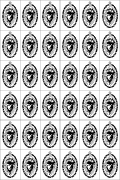 A4 size |
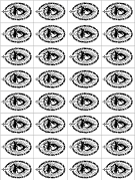 Letter size 8.5" X 11" |
| Polish | |||
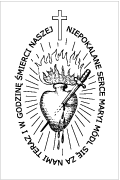 Single image 30mm X 45mm |
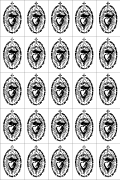 B5 size |
 A4 size |
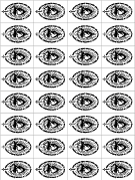 Letter size 8.5" X 11" |
| Portuguese | |||
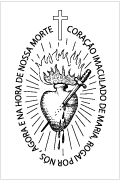 Single image 30mm X 45mm |
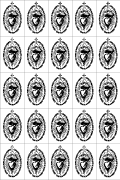 B5 size |
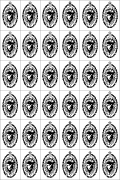 A4 size |
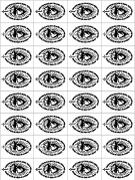 Letter size 8.5" X 11" |
| Russian | |||
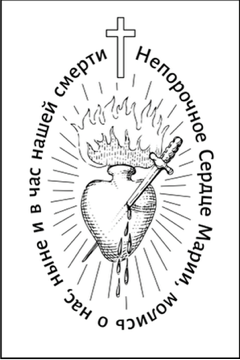 Single image 30mm X 45mm |
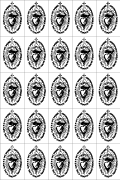 B5 size |
 A4 size |
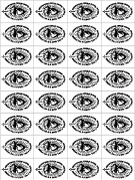 Letter size 8.5" X 11" |
| Slovak | |||
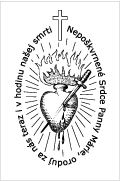 Single image 30mm X 45mm |
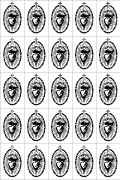 B5 size |
 A4 size |
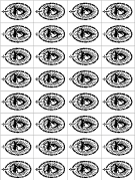 Letter size 8.5" X 11" |
| Spanish | |||
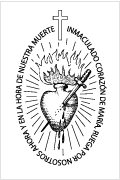 Single image 30mm X 45mm |
 B5 size |
 A4 size |
 Letter size 8.5" X 11" |
| Spanish version 2 | |||
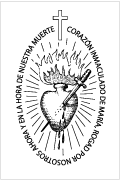 Single image 30mm X 45mm |
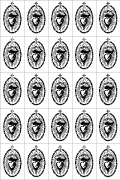 B5 size |
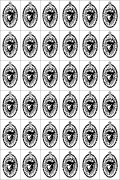 A4 size |
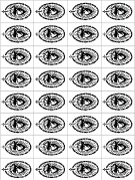 Letter size 8.5" X 11" |
| Tagalog | |||
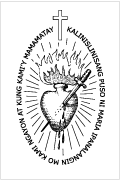 Single image 30mm X 45mm |
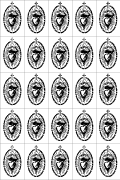 B5 size |
 A4 size |
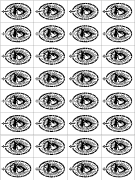 Letter size 8.5" X 11" |
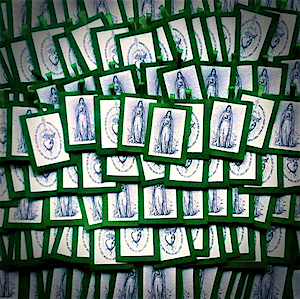 This is a free resource for all who want to make Green Scapulars. These are original illustrations done by me. You may use these images to make Green Scapulars. You may even sell them. You don't have to ask me because permission is already granted.
This is a free resource for all who want to make Green Scapulars. These are original illustrations done by me. You may use these images to make Green Scapulars. You may even sell them. You don't have to ask me because permission is already granted.